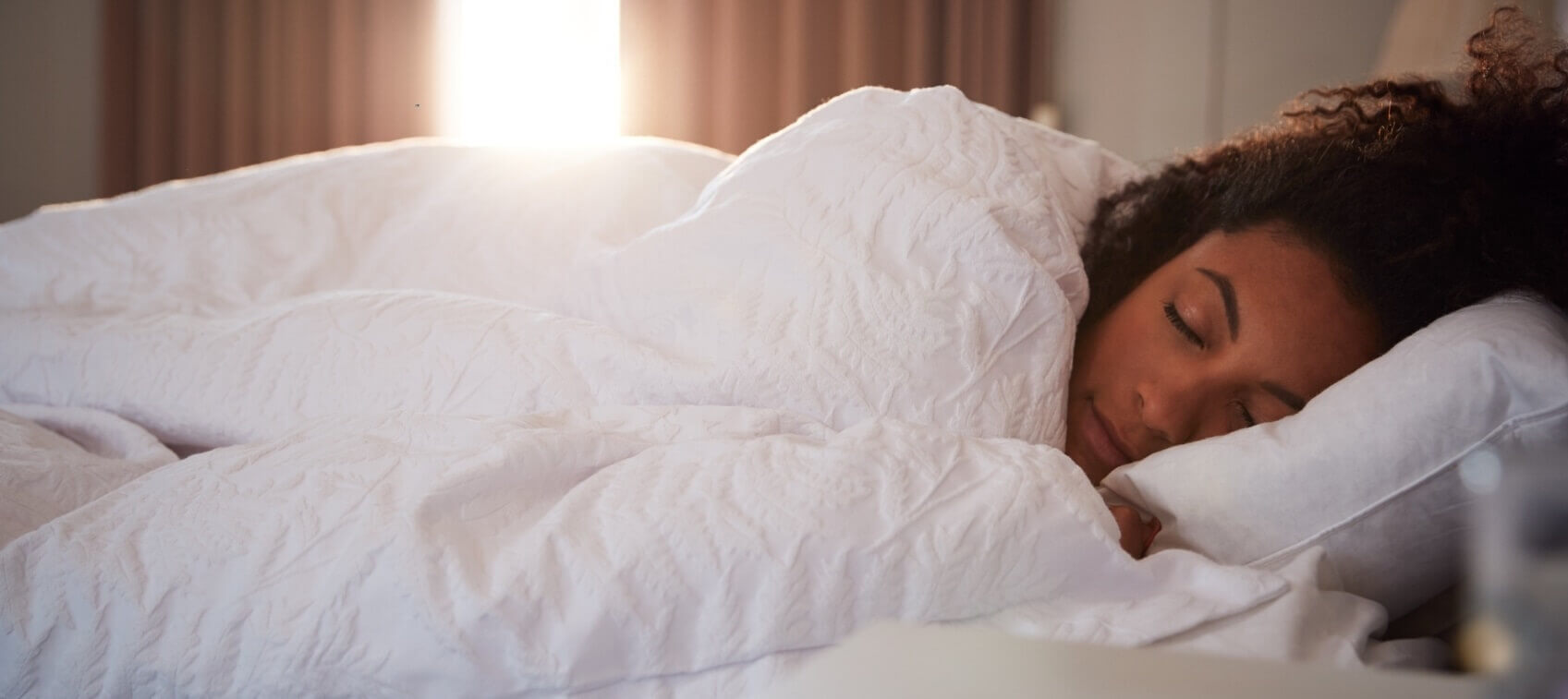
If you’re a middle-aged woman, how long can you and your bestie go without your conversation turning to sleep or the lack of it? This is, unfortunately, an all-too-common midlife gripe for women during their menopausal years, so you’re not alone!
Insomnia is not only two times more common in women than in men, but the frequency of insomnia increases with age. Plus, it can be exacerbated by menopause. A triple whammy!
The good news is you can easily change your sleep habits, also known as “sleep hygiene,” to support a restful night’s sleep. Follow these simple tips and soon you and your bestie will be talking about how you’re sleeping better and feeling more energetic throughout the day.
Your Pre-Bedtime Routine
- Avoid caffeine after noon. Watch wine, sugar, and chocolate consumption in the evening—they are stimulants that can negatively impact your sleep.
- Turn down the lights at least two hours before bed. Melatonin is a naturally occurring hormone that helps regulate your sleep-wake cycle. Melatonin is controlled by light exposure. Your brain secretes more melatonin when it’s dark and less when it’s light.
- Install a blue light blocking app or invest in blue light blocking glasses if you are using screens at night. This includes tablets, smartphones, TVs, and computers. These devices emit blue light which can suppress melatonin production. At our house, we completely unplug at least one hour before bed.
- Wind down and calm your mind and body with a relaxing bedtime yoga practice. Legs up the wall (Viparita Karani) is a great yoga pose to do right before you go to bed. Having your legs above your head allows the nervous system to calm down and brings your body to a state of deep relaxation.
- Run a diffuser with essential oil in your bedroom at least 30 minutes before bed. My favorite essential oils to help relax your mind and body and promote a restful night’s sleep are chamomile and lavender.
- Go to bed at the same time every night and wake up at the same time each morning, even on weekends. This helps set your body’s internal clock and enhances your quality of sleep. Choose a bedtime when you normally feel tired, so you don’t toss and turn.
- Avoid lying awake. If you can’t sleep, find something relaxing to do until you feel sleepy again. This ideally does not involve a screen.
Turn Your Bedroom Into a Sleep Haven
- Your bedroom should be for sleep and sex ONLY! You want your bedroom to be a sanctuary away from triggers that send your mind spinning.
- Keep a journal at your bedside table so you can easily jot down worries to help clear your mind.
- Unplug phones and other electronic devices that create an electromagnetic field that can disrupt your sleep. You can also place tablets and phones on airplane mode.
- Sleep in complete darkness. Blackout curtains are super helpful. Remove all ambient light from your electronics. If this isn’t possible, consider wearing an eye mask.
- Earplugs or white noise machines are great if you are a light sleeper.
- Invest in bedding made of natural materials and a comfortable mattress. Unlike synthetic materials that can make you too hot or not warm enough, natural materials are great body temperature regulators. They keep you cool in the summer and warm in the winter, so you can enjoy a comfortable night’s sleep.
- Keep your bedroom slightly cool. The ideal sleeping temperature is between 60 and 67 degrees Fahrenheit. As you sleep, your body temperature naturally lowers. A cooler environment helps stimulate sleep and helps you stay asleep all night.
Sleep-Supporting Supplements
- Magnesium helps support deep, restorative sleep by relaxing your muscles and mind. It’s also great for insomnia caused by restless leg syndrome. Suggested dose: 200–400 mg daily.
- Melatonin, the hormone of sleep is naturally produced in the pineal gland and regulates your circadian rhythms. Suggested dose: 1–6 mg (average dose 3 mg) 30–60 minutes before bedtime.
- Valerian (Valeriana officinalis) is a traditional remedy for insomnia and anxiety. It helps calm your mind and body so you can fall asleep easier. Suggested dose: 300–600 mg 30 minutes before at bedtime.
- PharmaGABA is a well-absorbed form of GABA, an amino acid that acts as the brain’s primary calming neurotransmitter. It provides a nice “off switch” at night. Suggested dose: 100 mg 30 minutes before bedtime.
- L-theanine is a calming amino acid that boosts the activity of GABA. Suggested dose: 200 mg 30 minutes before bedtime.


